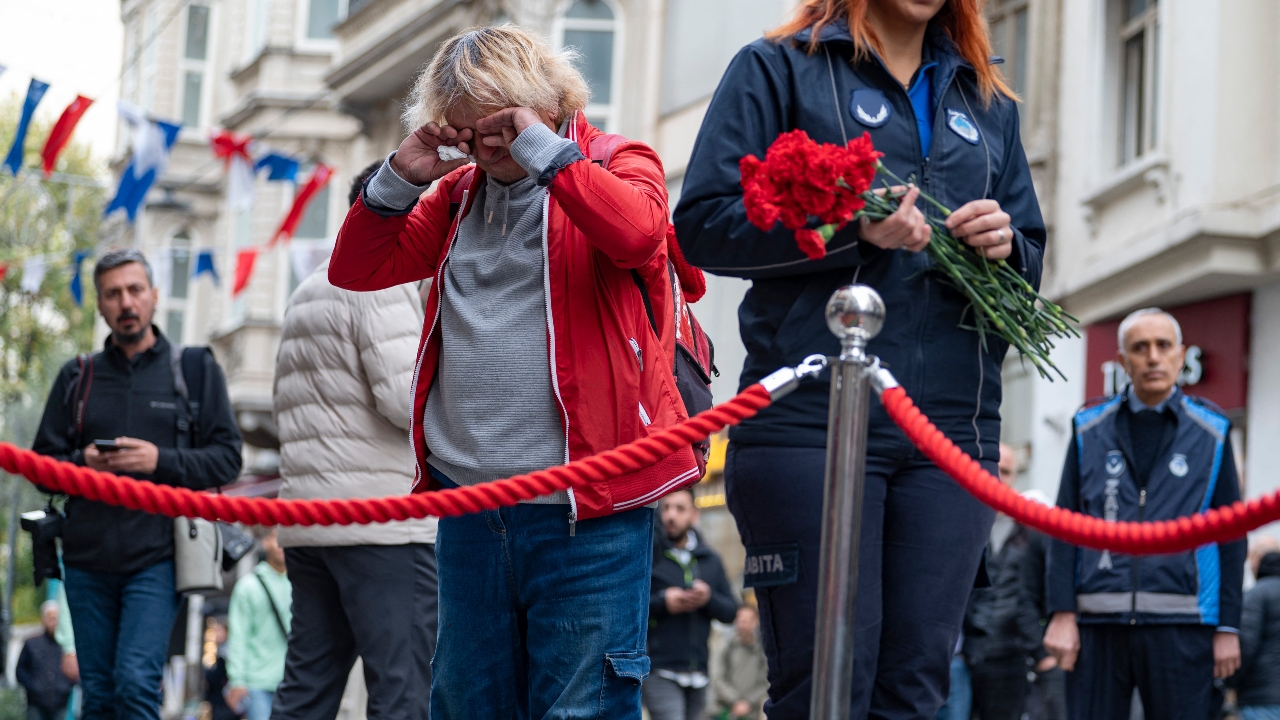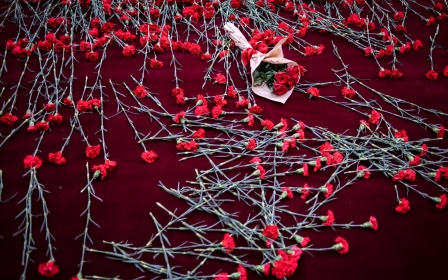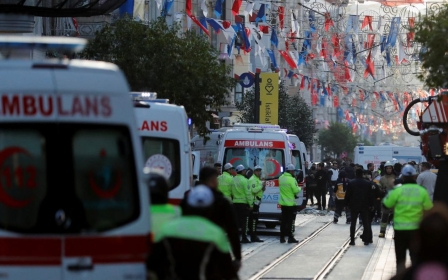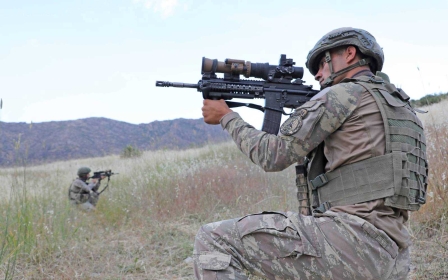Istanbul bombing: What we know so far about the attack

Turkey's Interior Minister Suleyman Soylu has accused the Kurdistan Workers' Party (PKK) armed group of responsibility for a bombing in a busy Istanbul street that killed six people and wounded scores more.
Istanbul police said dozens of people had been arrested over Sunday's attack, including a woman suspected of having planted the bomb.
The PKK on Monday denied responsibility for the attack and no group has so far claimed it.
In a statement on its website, the PKK said: "It is out of [the] question for us to target civilians in any way."
Here's what we know so far about the blast:
New MEE newsletter: Jerusalem Dispatch
Sign up to get the latest insights and analysis on Israel-Palestine, alongside Turkey Unpacked and other MEE newsletters
The suspect
Istanbul police say 46 people have been arrested over the attack, including a woman suspected of having planted the bomb.
The police said Ahlam Albashir is a Syrian national and that she had confessed to being trained by the PKK.
Footage released by the Istanbul police appeared to show that Albashir had a gun and some ammunition at her residence, along with a considerable amount of cash and some gold.
'Assassination' foiled
Soylu said on Monday morning in a live television interview from Istiklal Avenue, where the bombing hit, that if Albashir had not been arrested she could have escaped to Greece.
The minister also said that authorities had a phone tap showing that the PKK had ordered Albashir's killing after the attack and that authorities had arrested the person sent to kill her.
US criticised over attack
Condemnations of the attack and condolences for the victims have poured in from the United States, the European Union, Egypt, Ukraine, Greece and several other countries.
However, Turkish authorities linked the blast to Washington's support for the YPG, a Syrian Kurdish group that has been a US partner in the war against the Islamic State but is considered by Turkey to be the Syrian branch of the PKK.
The Turkish presidency's communications director, Fahrettin Altun, said such attacks "are direct and indirect results of the support some countries give to terrorist organisations".
Soylu likened the US condolences to "the murderer arriving as one of the first at the scene of the crime".
Syria and Iraq
Soylu said the order for the attack was given in Kobane, a city in northern Syria known as Ayn al-Arab in Arabic, where Turkish forces have carried out operations against the YPG in recent years.
Soylu said Albashir had passed through Afrin, a Turkish-held region of northern Syria, on her way to Istanbul.
The attack came as Ankara has intensified its drone attacks and operations against the PKK leadership in Syria and Iraq, killing several people, from mid-level officials to people in the leadership, in recent months.
There are also multiple Turkish military operations in northern Iraq, which have pushed the PKK towards the south.
The PKK, which previously fought for a breakaway state but now seeks greater autonomy for Kurds, has been fighting the Turkish authorities in a bloody conflict that began in the 1980s and has taken tens of thousands of lives.
The Kurdish-led Syrian Democratic Forces (SDF), of the which the YPG are the main component, denied on Monday any role in the attack.
"Our forces have nothing to do with the Istanbul bombing," said Mazloum Abdi, the chief commander of the US-allied SDF.
Middle East Eye delivers independent and unrivalled coverage and analysis of the Middle East, North Africa and beyond. To learn more about republishing this content and the associated fees, please fill out this form. More about MEE can be found here.




